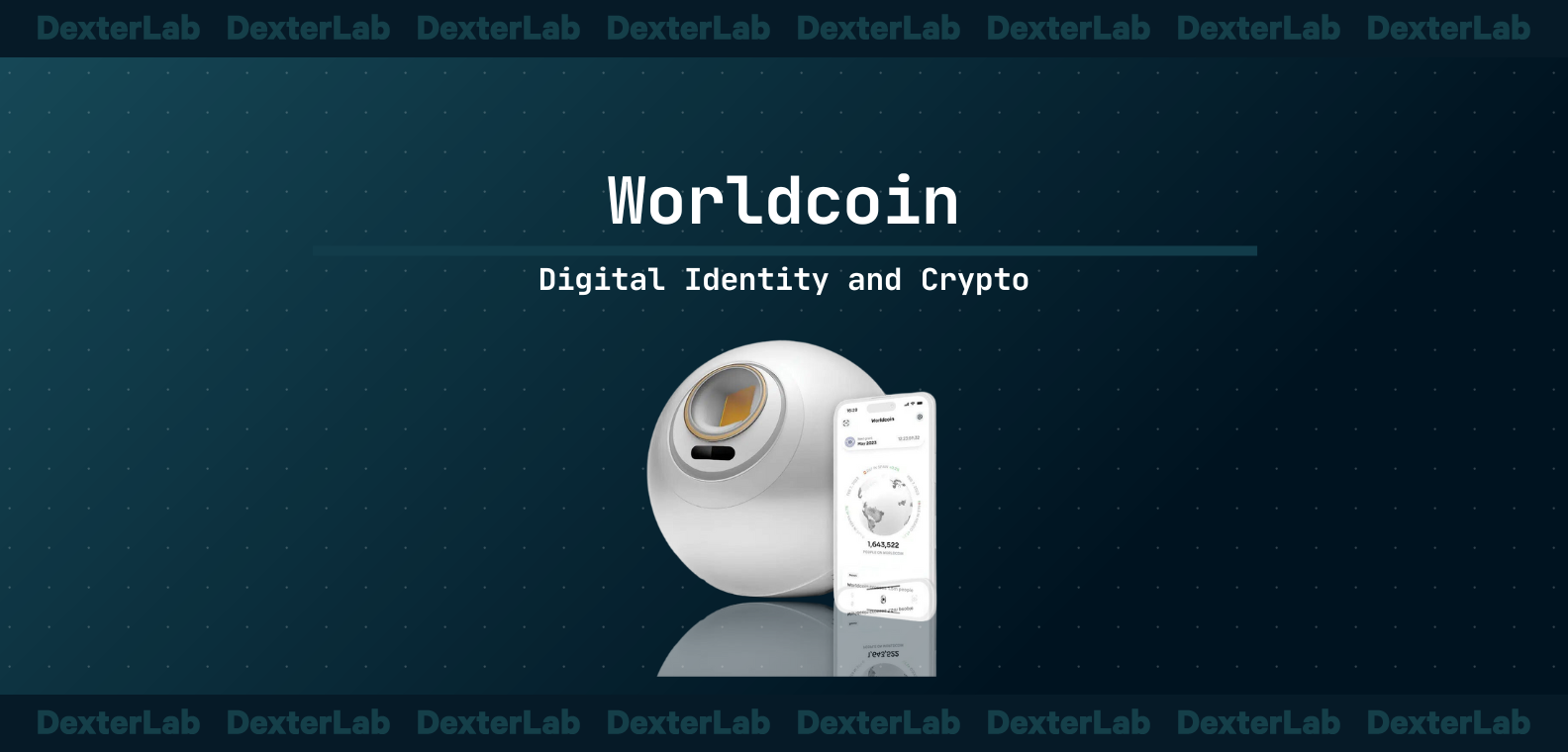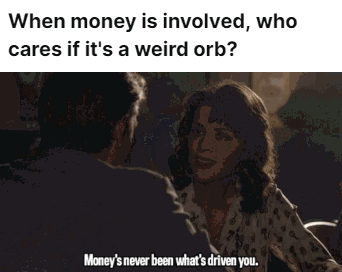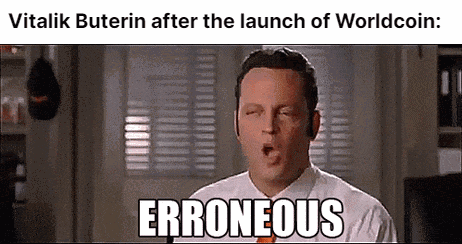
WorldCoin: Digital Identity and Crypto
As people were getting accustomed to the evolving phase of AI, Sam Altman, the cofounder of OpenAI spikes a whole new debate with his cryptocurrency project– Worldcoin. Let's take a dive into the topic to see what this Orbs are all about.
After OpenAI launched its ChatGPT, it was confirmed that a dystopian future of AI awaits us. While some painted a picturesque model of the future, most were horrified by the future possibility of losing their distinctive value as human beings. As people were getting accustomed to the evolving phase of AI, Sam Altman, the cofounder of OpenAI, spikes a whole new debate with his cryptocurrency project– Worldcoin. The cryptocurrency project is based on digital identity, and the motif is to differentiate humans from AI bots in the crypto-verse.
As the interests rise in the topic, controversies and concerns relating to it get equal validation. Let’s take a dive into the technology to understand what the beef is all about!
How does Worldcoin work?
The core purpose of Worldcoin is to differentiate between humans and bots. With the rise of AI, Altman’s team believes that the importance of differentiating between humans and robots is not even up for debate. It is just too obvious given how close machines are getting towards imitating humans. Since the problem here is so indispensable, Sam proposes his own solution to the table, with his new crypto project “Worldcoin”.
At the center of this project is an iris-scanning orb, that verifies a human identity and stores it as a hash in the blockchain. In turn, it gives the users their own token, WLD. It is a prototype of Universal Base Income and any UBI, it needs two things: a payment system and an identity system. Worldcoin’s payment system uses Ethereum’s rollup method to pump up scalability and reach billions of users, since its ultimate goal is to incorporate the whole of humanity. Then comes the non-custodial wallet, which lets users access the tokens on the Ethereum ecosystem. Each wallet will be associated with the generated hash once someone scans their iris through the orb. Using zero-knowledge proof, this will later be able to only identify that there’s a unique human user for the wallet. However, the system cannot trace back who this wallet belongs to.
So, why would anyone want to look into a weird device and get their irises scanned for some weird project? –it's the money. Upon signing in, the company offers a certain amount of Worldcoin to the new users. This amount drops as time passes. But in the meantime, people seem to be totally up for it.
In short, you get paid for being a human!

So far, the company has faced regulatory restrictions from the United States only. According to the Forbes interview, Altman seems pretty indifferent about it. He confirms that only 5 percent of the world population being out does not have any significant impact on the project.
The Objections to the Orbs
While the whole idea of Worldcoin is ambitious enough to sway investors into investing 115 Million USD, it has yet to overcome some major inconsistencies and shortcomings– pointed out by Vitalik Buterin. The founder of Ethereum, himself, wrote a blog post/ article, following the launch of Worldcoin, where he boldly stated the gaps the project had. Major concerns about the Worldcoin launch stated by Buterin were related to:
- Feasibility;
- Security;
- Decentralization
The most justified concern that Vitalik Buterin raised about Worldcoin was about its feasibility. To incorporate humans into their system, Worldcoin needs Orbs as a medium. Looking at the demographics, only 51% of the total population in sub-Saharan Africa now have smartphones. Although the number is projected to increase to 87% by 2030, the number of Orbs now existing is infinitesimal compared to the number of smartphones. Even with the plan of producing 50 thousand Orbs every year, the feasibility of implying the project at full scale is questionable.
The second point comes to decentralization. Imagine a system having control over the data of all the world's population. Without a doubt, that alone, bestows an enormous power on one side of the equation. Let’s assume the Orbs do make it out to every corner of the world. There’s still the possibility of a centralized authority, the government, banning the Orbs. So, the system will not be free of centralized influences.
The concerns intensify with the question of security. Apart from being a sketchy Orb device collecting your data, the type of data they are collecting is also quite sensitive. Worldcoin has already assured the security of the Orbs implying that if any one of them functions in a manner foreign to the system, the system will automatically disable it. Having said that, it is still an area of gray, since it is extremely complicated when hardware gets involved. There is also a possibility of the Orb generating false identity hashes if exposed to 3D human models. If any Orb gets hacked, it could generate a whole nation of non-existing people. On top of that, the possibility of people getting their IDs hacked via a smartphone hack or selling their IDs adds extra pressure on the system. Since most people are signing up for a few crypto tokens, it is absolutely rational to assume that many would be willing to sell off their identities in exchange for money.

While all the concerns Vitalik Buterin raised about Worldcoin are very sound and justified, it doesn’t nullify the fact that we still need digital IDs and decentralized means to identify people instead of the traditional ones where the government is fully in control of our most sensitive data. However, Worldcoin, with all its innovative approaches and ambitions, is not just the perfect fit to solve the existing problem. The technology may pave the way for other, more suitable solutions, but it is definitely not the one putting an end to the hurdle.
Trading Worldcoin?
Worldcoin is built upon Ethereum’s Blockchain network. So, the token it offers, WLD, follows ERC-20 protocols. The way to access these tokens is to scan your eyeball into an Orb, given you are a human. This means a lot of people holding these coins will be in a rush to sell them. As a result, there could be a substantial drop in price since the selling pressure would be significantly high. Despite Worldcoin having protocols designed to restrict people from selling it off as soon as they get it, it only slows down the probable supply pressure. In the topic of demand, Worldcoin does not offer any substantial value except for the AI hype associated with it. It is hard to say what will keep its demand upright when the hype dies out.
Given all the red flags, it has still got a huge market cap, rising to one of the top altcoins out there.
Conclusion
Skimming through the whole project of Worldcoin, it is true that the problem they are trying to address is very legitimate. In such a rising age of AI, “proof of personhood” is something that we all can need. But there is a whole new spectrum of troubles that this technology brings along. Hence, it is safe to conclude that Worldcoin’s technology is far from adequate.
Having said that, with crypto and web3 developments, it is hard to assume what we will be experiencing in the foreseeable future. The launch of Worldcoin could only be the beginning of a new trend and evolve into an efficient solution.
